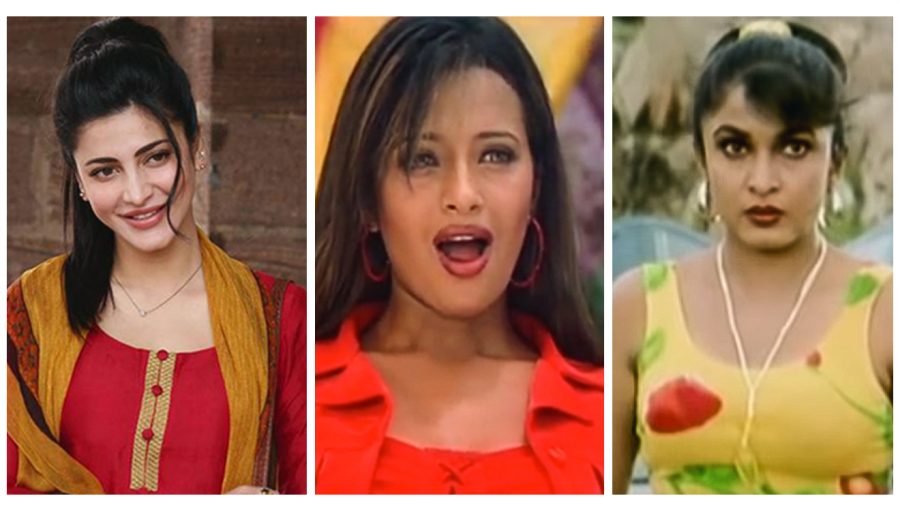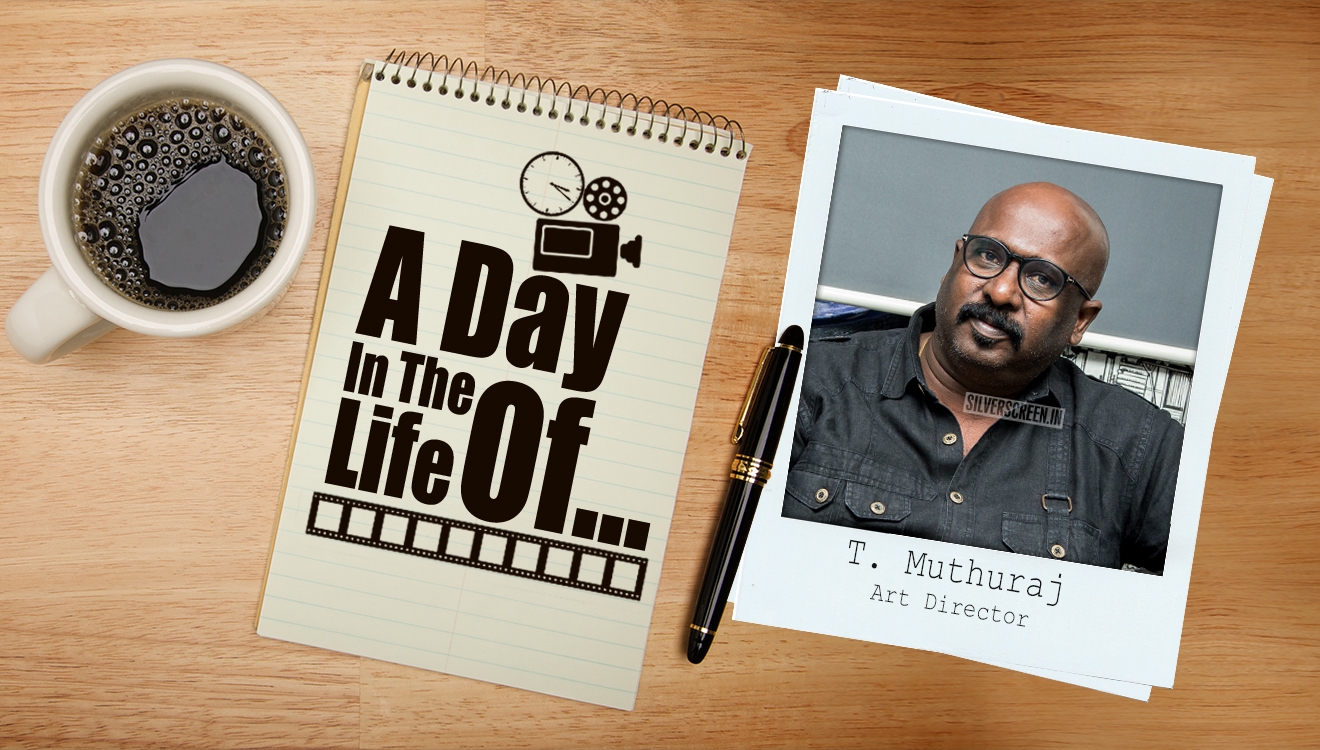Tamil films like their heroines nice and sweet. Often portrayed as an epitome of womanhood, these gentle women are reared by equally gentle mothers, and exist solely to fall in love and then marry the brutish young men, Tamil film directors dream up.
And then, there are the other women.
High-spirited and with that rare ability to pursue whatever they want, they’re the villains of the piece. As they swan around in modern outfits, these women are glorious. And yet, they exist merely to serve as negative contrasts to the pious ladies Tamil cinema likes to glorify.
That doesn’t stop them from living their lives to the fullest though. While directors might do their best to make these women look wanton, and hence, undesirable, they remain true to their flamboyant selves. That rare amalgamation of pride, arrogance, intelligence and a keen social awareness that evades the good girls.
Aval Appadithaan
Rudriah’s supposedly feminist epic is still bound by the times it was made in. While it espouses theories and ideas that seem dated today, it can still be feted for giving us the gloriously independent Manju. Two men vie for her affections. A third has already cheated her of her trust in the opposite sex. And yet, she soldiers on. She knows what she wants and is unafraid to take it.
An original – Manju is the kind of woman who is often misconstrued and misunderstood. She tries to teach the lecherous Thyagu (Rajinikanth) a lesson, and in the process loses out on another man. But, she doesn’t allow this to define her. As the credits roll, Rudriah spells out her fate.
She died today. She will be reborn tomorrow. She will die again. And, she will be reborn again.
This phoenix-like aspect of Manju is what makes her one of the most versatile female characters Tamil cinema has ever produced. It’s only fitting that the men in the film walked away from her. For surely, they didn’t deserve her.
Panchathanthiram, Padaiyappa
KS Ravikumar does not have a reputation for turning out finely etched female characters. His world is black and white. There’s the good woman, and then there’s the other woman.
Interestingly enough, he chose to cast the dynamic Ramya Krishnan as the ‘other’ woman in two iconic, very male films.
As Maggie, Ramya Krishnan is at her element, often eclipsing Kamal Haasan and even veteran actor Nagesh in the comic scenes. This comedy of errors establishes Ramya’s Maggie as the villain right from the start.
Prostitute! Diamond Thief! And yet, it is hard not to take her side. Here’s a woman who soldiers on no matter what. Compare this with Simran’s sullen, green-eyed wife and there’s not much of a contest.
In Padaiyappa, Ramya (as Neelambari) faces off against Rajinikanth – a star at the height of his fame then. She is bold in her pursuit of the tiringly conservative Padaiyappa. She is open to a fault about her feelings, thus pitting her against the more docile (read boring) Soundarya.
The natural order of things in Tamil cinema means that Neelambari doesn’t quite get her due. Ravikumar stumbles upon an awesome female character, and doesn’t know what to do with her. So he makes her mad. He isolates her from all. He gives her her very own background score, and in the process, he makes her one hell of a woman.
Thank god Padaiyappa didn’t marry her.
Dhool
Jyothika plays a spirited village lass (Easwari) in this commercial entertainer, but it is Reema Sen’s take on the ‘glam doll’ role that truly held the audience captive. An aspiring model, Reema’s Swapna falls for Aarumugam (Vikram), the somewhat chauvinistic hero. Content to admire her when she swans around in modern clothes, Aarumugam nonetheless makes his preference for Easwari very clear. Director Dharani takes the company line in this film – good girl gets hero, other girl gets to wave hero a teary goodbye.
But, Swapna with her bold declarations of love and bolder fashion sense is the true winner. Despite the director’s many efforts to make her out to be the sort of person young women should not aspire to be.
Singham 2 & 3
Suriya’s honest, upstanding officer is naturally a magnet for women. Or so director Hari wants us to think. Despite being in a relationship with Anushka Shetty’s Kavya from the first film, Suriya nonetheless becomes the object of affection for young school girl, Sathya. This doesn’t lead anywhere.
In the third film, Suriya’s Durai Singham has to pretend his wife, Kavya, does not exist. This means that he is allowed to dance in foreign locations with Shruti Haasan (as Vidhya). This is fine. This is cool.
What’s not though is the incessant morality lectures Durai Singham gives Sathya and Vidhya, with Kavya looming large over the whole film – a shining model of womanhood.
This probably is enough for Vidhya and the audience to realise that Durai Singham is no catch. Sathya, though, dies without knowing this fact.
Indian
Easily the most scintillating aspect of Indian is Urmila Matondkar’s Sapna. Kamal Haasan flirts with the lady in order to develop a cozy relationship with her father, a high-ranking bureaucrat.
He also falls in love with the animal-loving Aishwarya, a soft, docile creature who needs constant rescuing. This appeals to Kamal and so a love affair begins.
Sapna, on the other hand, is given a song of her own and several drool worthy outfits. But, she doesn’t get the man.
From what we know of Kamal’s Chandru (a man who becomes the sort of person even his father detests), one can safely assume that Sapna got a lucky break.
Gentleman
Recommended
Much of Shankar’s films have an older man patiently tutoring a younger, spirited woman on the many ways women are expected to behave. Which is plain silly, because what do men know. But, that’s Shankar for you – a director so immersed in his world of vigilantes and brutal crimes, that he fails to heed even the most basic tenets of good filmmaking. The number one rule needs to be ‘don’t mansplain’, but Shankar skipped right past that.
In Gentleman, the onerous task of tutoring young Sugandhi (Subhashri) falls on Arjun’s weary shoulders. Strong, silent male types are truly exasperating, as Arjun goes on to prove. After a particularly risky night out, Sugandhi is made out to be the sort of woman who single-handedly brings down Tamil culture. She is married off subsequently, lest she bring down any more Tamil conventions.
But, for the brief period that Sugandhi was allowed to shine, she shone bright like a diamond, as that Rihanna song goes. From playing risque games to dressing like the girl boss she was, Sugandhi was the sole awesome, kickass part of the film.
*****



